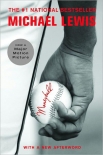Moneyball by Lewis, Michael (books to read in your 30s TXT) 📗

Book online «Moneyball by Lewis, Michael (books to read in your 30s TXT) 📗». Author Lewis, Michael
Still, James had never tried to show how the statistics of a high school or a college player might be used to make judgments about his professional future. The question of whether college performance translated into a professional career simply hadn’t been answered, at least not publicly. Privately, Paul DePodesta, the head of R&D for the Oakland A’s, had made his own study of it.
As a result of that study, the Oakland A’s front office, over the silent shrieks of their own older scouts, were about to implement a radical new idea about young men and baseball. Lives were about to change, of people who had no clue that they were on the receiving end of an idea. As the scouts poured into the draft room, and stuffed their lower lips with chaw, a catcher with a body deemed by all of baseball to be unsuited to the game sat waiting in Tuscaloosa, Alabama. Jeremy Brown had no idea why what was about to happen to him was about to happen to him.
The morning of the amateur draft, Billy Beane arrived at the Coliseum earlier than usual and took the place he had occupied for the previous seven days. At dawn the room seemed more glaringly impersonal than usual; its cinder-block walls were the bright white of an asylum cell. The only hint of a reality outside were the four cheaply framed posters of former A’s stars: Rickey Henderson, Mark McGwire, Dennis Eckersley, Walt Weiss.
It was still early, a full hour before the draft, and the younger scouts trickled in to report their savings. It’s actually against Major League Baseball rules for teams to negotiate with players before the draft, but every team does it anyway, though not, perhaps, with the A’s enthusiasm. One of the first scouts to arrive is Rich Sparks (“Sparky”), who covers the Great Lakes region for the A’s. Sparky has just finished a conversation with Steve Stanley, a center fielder from Notre Dame, and he’s pleased. Steve Stanley was yet another example of the strange results you obtained when you ceased to prejudge a player by his appearance, and his less meaningful statistics, and simply looked at what he had accomplished according to his meaningful stats. The Major League Scouting Bureau lists Stanley at five foot seven and 155 pounds, but that’s wildly generous. Despite his size—or perhaps because of it—Stanley has a gift for getting on base. To judge crudely, with the naked eye, he already plays a better center field than Terrence Long, the A’s big league center fielder. And yet the scouts long ago decided Stanley wasn’t big enough to play.
Stanley has told Sparky that he expected to go after the fifteenth round of the draft. In other words, he expects to be taken by a team simply to fill out its minor league roster, not because the team thinks he has a chance of making it to the big leagues. Sparky has just informed Stanley that the A’s are willing to make him a second-round draft pick—and a genuine big league prospect—on the condition that he agree to sign for $200,000, or about half a million dollars less than every other second-round pick will sign for. Other teams will assume that Billy Beane is interested in all these oddballs because he can’t afford normal players, and Billy encourages the view. And it’s true he can’t afford anyone else. On the long cafeteria table in front of Billy sat an invisible cash register, and inside it the $9.4 million his owner had given him to sign perhaps as many as thirty-five players. The A’s seven first-round picks alone, paid what their equivalents had received the year before, would cost him more than $11 million. Billy uses his poverty to camouflage another fact, that he wants these oddballs more than the studs he cannot afford. He views Stanley as a legitimate second-round pick. Since no one else does, he might as well save money on him.
“Sparky, we all right?” asks Billy.
“Yeah, sure,” says Sparky. “I thought he was going to jump through the phone when I told him.”
Billy laughs. “Pumped, are we?”
“I think he’d play for free,” says Sparky.
After Sparky comes Billy Owens (“Billy O”), the young scout who covers the Deep South and is thus responsible for all communication with the University of Alabama catcher, Jeremy Brown. “Billy O looks like a Jamaican drug lord, doesn’t he?” shouts Billy Beane, as Billy O ambles into the draft room. Billy O doesn’t bother to smile. Too much trouble. He somehow conveys the idea of a smile without moving a muscle.
“We’re all right, huh?” says Billy.
“Yeah, we all right,” says Billy O.
“Does he understand?”
“Oh he understands.”
Billy O is what you’d get if you hammered Shaquille O’Neal on the head with a pile driver until he stood six foot two. He’s big and wide and moves only when he is absolutely certain that movement is required for survival. He’s shrewd, too, and can see what you mean even if you don’t. Over the past few days Billy O has come to see that he has a novel task: giving Jeremy Brown a new opinion of himself. He took it in small steps; he didn’t want to shock the kid. “That boy told me he’d be happy





Comments (0)